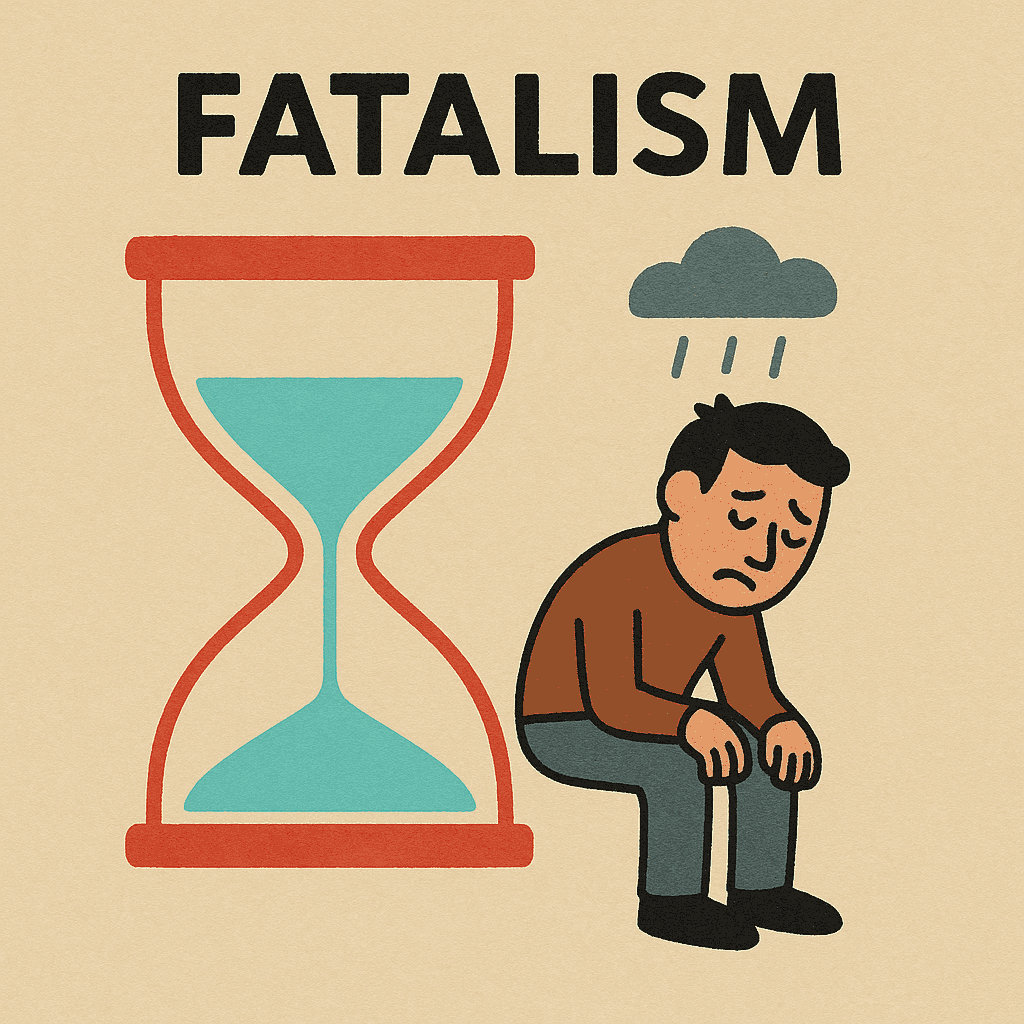Meaning
Fatalism is the belief that all events are predetermined and inevitable, and therefore humans are powerless to change them. It often carries the idea that fate or destiny controls everything that happens.
Grammar and Usage
- Part of speech: Noun (uncountable)
- Used to describe a philosophical or psychological attitude.
- Often appears in discussions of religion, philosophy, or human behavior.
Typical structure:
- "fatalism about + [topic]"
- "a sense of fatalism"
- "resigned to fatalism"
Common Phrases
- religious fatalism – belief in divine predestination
- political fatalism – acceptance that political events cannot be changed
- a sense of fatalism – a feeling that nothing can be altered
Collocations
- adjectives + fatalism: blind fatalism, passive fatalism, stoic fatalism
- verbs + fatalism: accept fatalism, reject fatalism, be resigned to fatalism
- fatalism + prepositions: fatalism about life, fatalism in society
Examples
- His belief in fatalism made him accept every misfortune without protest.
- The novel portrays a sense of fatalism in the lives of the oppressed villagers.
- She rejected fatalism and insisted that people could shape their own destinies.
- Political fatalism often leads to voter apathy.
- The soldiers faced battle with a grim fatalism, convinced their fate was sealed.
- Fatalism can prevent people from taking action to improve their lives.
- He approached his illness with stoic fatalism, believing nothing could change the outcome.
- In many cultures, fatalism is tied to religious traditions.
Synonyms or Related
- predestination
- determinism
- inevitability
- resignation
- acceptance of fate
